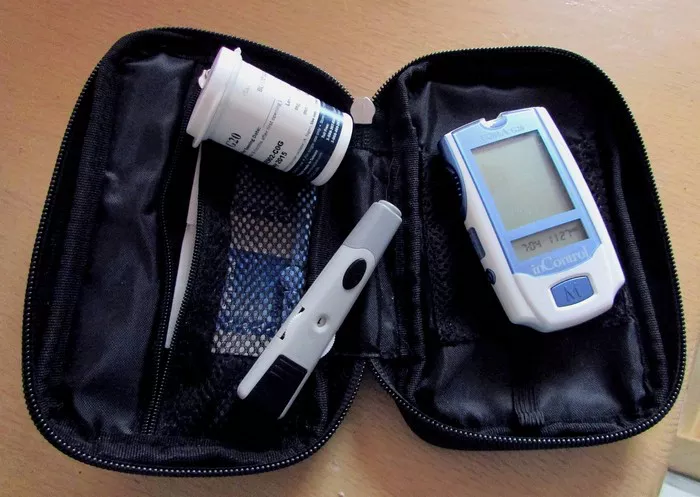Diabetes mellitus, a complex metabolic disorder characterized by chronic hyperglycemia, encompasses a spectrum of heterogeneous conditions with diverse etiologies, clinical presentations, and management strategies. Understanding the major types of diabetes is essential for healthcare providers and individuals alike, as it enables tailored approaches to diagnosis, treatment, and prevention. In this comprehensive article, we embark on a journey through the landscape of diabetes, exploring the major types of the condition, their distinct features, underlying mechanisms, and implications for clinical practice.
Introduction to Diabetes Mellitus:
Diabetes mellitus is a global health challenge, affecting millions of individuals worldwide and imposing substantial burdens on healthcare systems. The condition is characterized by impaired glucose metabolism, resulting in elevated blood glucose levels (hyperglycemia) due to defects in insulin secretion, insulin action, or both. Insulin, a hormone produced by the pancreas, plays a central role in regulating glucose homeostasis by facilitating glucose uptake into cells and promoting glycogen synthesis and storage. Dysregulation of insulin signaling pathways leads to glucose intolerance, metabolic derangements, and a myriad of acute and chronic complications.
The Major Types of Diabetes:
Diabetes mellitus encompasses several major types, each with distinct etiologies, pathophysiological mechanisms, clinical manifestations, and management approaches. The main types of diabetes mellitus include:
1. Type 1 Diabetes Mellitus (T1DM):
- Type 1 diabetes mellitus, also known as insulin-dependent diabetes or juvenile-onset diabetes, results from autoimmune destruction of pancreatic beta cells, leading to absolute insulin deficiency.
- Etiology: Genetic susceptibility, environmental triggers, and autoimmune factors contribute to beta cell destruction mediated by autoreactive T cells and autoantibodies.
- Clinical Features: T1DM typically presents with abrupt onset of symptoms, including polyuria, polydipsia, polyphagia, weight loss, fatigue, and ketosis.
- Management: Treatment involves exogenous insulin replacement therapy via multiple daily injections (MDI) or continuous subcutaneous insulin infusion (CSII), along with comprehensive diabetes education, blood glucose monitoring, carbohydrate counting, and lifestyle modifications.
2. Type 2 Diabetes Mellitus (T2DM):
- Type 2 diabetes mellitus, also known as non-insulin-dependent diabetes or adult-onset diabetes, is characterized by insulin resistance, impaired insulin secretion, and relative insulin deficiency.
- Etiology: Genetic predisposition, obesity, sedentary lifestyle, dietary factors, and aging contribute to the pathogenesis of T2DM, with insulin resistance playing a central role.
- Clinical Features: T2DM often presents insidiously with symptoms such as polyuria, polydipsia, blurred vision, fatigue, and slow wound healing. However, many individuals with T2DM may be asymptomatic or have mild symptoms initially.
- Management: Treatment focuses on lifestyle modifications (e.g., diet, exercise, weight loss), oral antidiabetic medications (e.g., metformin, sulfonylureas, DPP-4 inhibitors), injectable therapies (e.g., GLP-1 receptor agonists, insulin), and regular monitoring of blood glucose levels, blood pressure, lipids, and kidney function.
3. Gestational Diabetes Mellitus (GDM):
- Gestational diabetes mellitus is a form of diabetes that develops during pregnancy and is associated with insulin resistance, impaired beta cell function, and hormonal changes.
- Etiology: Pregnancy-related hormonal changes, placental factors, and maternal insulin resistance contribute to the pathogenesis of GDM.
- Clinical Features: GDM may present with mild or asymptomatic hyperglycemia during pregnancy, but it can increase the risk of adverse maternal and fetal outcomes if left untreated.
- Management: Treatment involves lifestyle modifications (e.g., diet, exercise), blood glucose monitoring, and insulin therapy as needed to maintain glycemic control and reduce the risk of complications for both mother and baby.
4. Other Specific Types of Diabetes:
- Other specific types of diabetes mellitus encompass a diverse group of conditions with distinct etiologies and clinical presentations.
- Examples include:
Maturity-onset diabetes of the young (MODY): Monogenic forms of diabetes characterized by mutations in specific genes affecting beta cell function.
Neonatal diabetes mellitus: Rare forms of diabetes diagnosed in the first months of life due to genetic mutations affecting insulin secretion.
Secondary diabetes: Diabetes mellitus secondary to underlying conditions such as pancreatitis, cystic fibrosis, hemochromatosis, hormonal disorders, or medication-induced hyperglycemia.
Conclusion:
Diabetes mellitus is a complex and multifaceted condition encompassing a spectrum of major types with diverse etiologies, clinical manifestations, and management strategies. Understanding the distinct features of each type of diabetes is essential for accurate diagnosis, individualized treatment, and effective management. By embracing a comprehensive approach to diabetes care that addresses both glycemic control and associated comorbidities, healthcare providers can optimize outcomes and improve the quality of life for individuals living with diabetes mellitus. Through ongoing research, education, and advocacy efforts, we can strive to prevent and mitigate the global burden of diabetes and promote health equity for all.


























